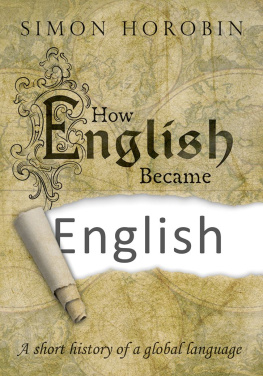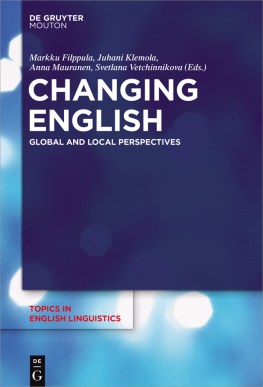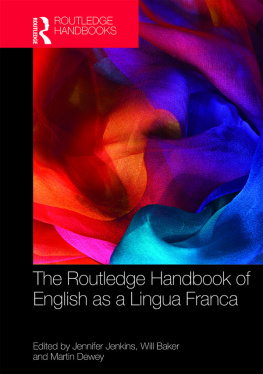The Rise of English

Oxford University Press is a department of the University of Oxford. It furthers the Universitys objective of excellence in research, scholarship, and education by publishing worldwide. Oxford is a registered trade mark of Oxford University Press in the UK and certain other countries.
Published in the United States of America by Oxford University Press
198 Madison Avenue, New York, NY 10016, United States of America.
Rosemary Salomone 2022
All rights reserved. No part of this publication may be reproduced, stored in a retrieval system, or transmitted, in any form or by any means, without the prior permission in writing of Oxford University Press, or as expressly permitted by law, by license, or under terms agreed with the appropriate reproduction rights organization. Inquiries concerning reproduction outside the scope of the above should be sent to the Rights Department, Oxford University Press, at the address above.
You must not circulate this work in any other form and you must impose this same condition on any acquirer.
CIP data is on file at the Library of Congress
ISBN 9780190625610
eISBN 9780190625634
DOI: 10.1093/oso/9780190625610.001.0001
In memory of my parents
Contents
The metaphor of a journey is often used to describe the process of researching and writing a book. For me this book has been an especially long and winding expedition, taking me across four continents and through the parallel universe of a global pandemic that only science fiction writers could envision. It began in 2013 with several commentaries that I wrote involving legal disputes in Italy and France over the use of English to teach university courses. I soon realized that unpacking those debates meant delving into the impact of globalization, international education, and the knowledge economy as shaped by neoliberalism and the force of English as the dominant lingua franca. Once I set on that course, the bigger project began to take shape.
Along the way, I encountered the work of activists, political philosophers, jurists, economists, linguists, and literary icons, within and beyond the Western canon, who guided me through conflicts over the power of language in shaping the identity of nations and their people. A visit to Ravenna, Italy, to engage with one hundred cittadini (local citizens) reciting verses from Dante Alighieris La Divina Commedia before the master of the vernaculars tomb, followed by a procession through the streets and a live performance of the Inferno, made palpable the enduring force of language in defining a community. I also carried with me personal experiences. I grew up in a community where multiple languages were spoken. As a young adult, I worked in the world of language learnersteaching French to elementary school children; developing French-Haitian, Italian, and Spanish bilingual programs across the grades; teaching English to international university studentsbefore turning to the law and entering the legal academy.
My initial plan was to write a book on the value of language in the global economy, examining winners, losers, and resisters on both sides of the Atlantic. The deeper I dug into the research and the more world events evolved, the more I viewed the issues through a wider global lens and the clearer the connections to educational equity, identity, and democratic participation appeared. I also came to understand the role that France historically has played in pushing back on English dominance and Anglo-American influence, and the more recent competition from China in using the soft power of language, especially in Africa. Selecting other countries to explore beyond Europe and the United States grew organically from history, politics, and the disputed role that English has played over time in diverse settings.
Searching for distinctly relevant stories, I looked toward French-speaking Rwanda in resolving the genocide and Morocco in navigating its Arab roots, South Africa in its struggle to move beyond apartheid, and India in undoing the caste system against longstanding religious and linguistic conflicts. A court case in the Netherlands, where English has been widely embraced, gave more texture by way of contrast to the French and Italian debates on higher education. From there, the storm of global anxiety over English versus the calm of Anglophone satisfaction quickly took hold. Drawing on a vast store of interdisciplinary research, interviews, court decisions, political commentary, literature, and popular culture from around the globe and in multiple languages, I then faced the task of weaving together all that I had learned into a coherent discussion on English and its kaleidoscopic effects both past and present.
The book began with my sights on Europe and especially on Italy. And so it poignantly ended. In the final year of completing the manuscript, I watched with alarm as the global pandemic took a horrific toll initially on Italy and subsequently on countries, including my own, that I had spent these years closely exploring. Through that time, I touched base with many of my contacts in those settings and shared our common angst and fears. My deepest hope is that by the time the book goes to press, like Dante being led by his guide Virgil up and out of the Inferno, we too will have exited the darkness to see all that is beautiful in the heavens and riveder le stelle (once again see the stars).
In the course of researching and writing this book, I came to know dozens of professors, university administrators, lawyers, and advocatesat conferences, in virtual meetings, and through email correspondencewho shared with me their scholarship and their historical understandings and views on debates within their own and related countries. I am especially grateful to Annette de Groot, Hans de Wit, Catherine Baylin Duryea, Mekki Ebdari, Christine Hlot, Kathleen Heugh, Francis Hult, Fabrice Jaumont, Anton Kok, Peter Kraus, Anik Nandi, Timothy Regan, Gregg Roberts, Arundhati Satkalmi, Robert Slater, Margaret Winters, Marie de Briey Wyatt, and Richard Wyatt for generously reading various chapters and for their incisive comments and corrections. My thanks also go to Peter Kwikkers and Gisela Lang who answered endless questions with patience and detail on the Netherlands and Italy, respectively. Video conferencing, email, or telephone correspondence with Rama Agnihotri, Mathilde Anquetil, Alana Bailey, Alessandro Balducci, Presley Bergen, Marina Cavallini, Sherry Spiegel-Coleman, Dan Davidson, Janneke Gerards, Hermann Giliomee, Michele Giovannini, Franois Grin, Kristina Hultgren, Felix Huygen, Mercy Kannemeyer, Ralph Mociket, Christine Musselin, Daniela Poli, Olivia Ramsey, Danie Rossouw, Emmanuel Saint-Martin, Ad Verbrugge, and Quentin Williams offered additional direction. Frederick Schaffer wisely suggested that I dust off my decades-old student copy of Dantes Inferno for clarity and hope. Weekly conversations with Natalie Nicolai throughout the early years of the project provided invaluable insights into French education, history, and contemporary culture while sharpening my French and uplifting my spirits. I am especially grateful to Emilio Matricciani for providing me with a wealth of court documents from the Milan Polytechnic Institute litigation, and to the professors, administrators, and students at the institute, including legal counsel Maria Agostina Cabiddu, who welcomed me into their classrooms and their world.

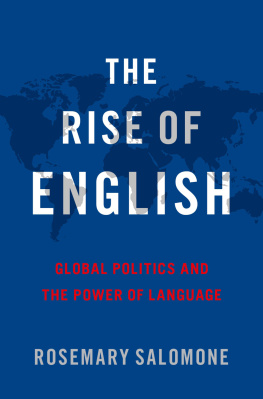
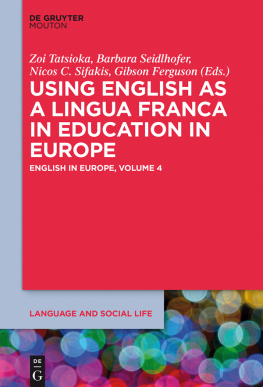

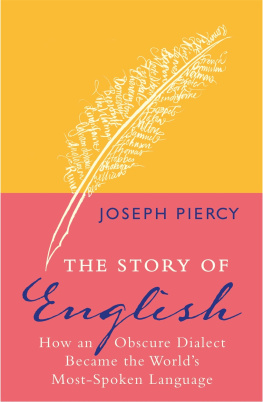
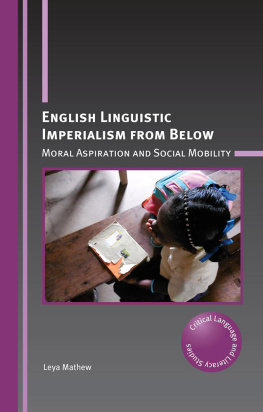
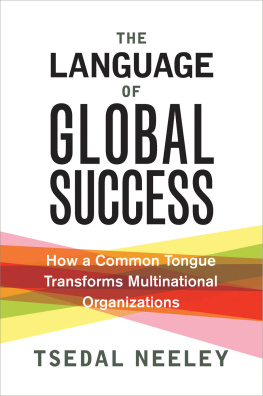
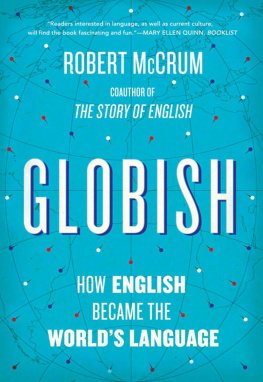
![Bhattacharjee Sudakshina - Improve your global business english: [the essential toolkit for writing and communicating across borders]](/uploads/posts/book/205847/thumbs/bhattacharjee-sudakshina-improve-your-global.jpg)

